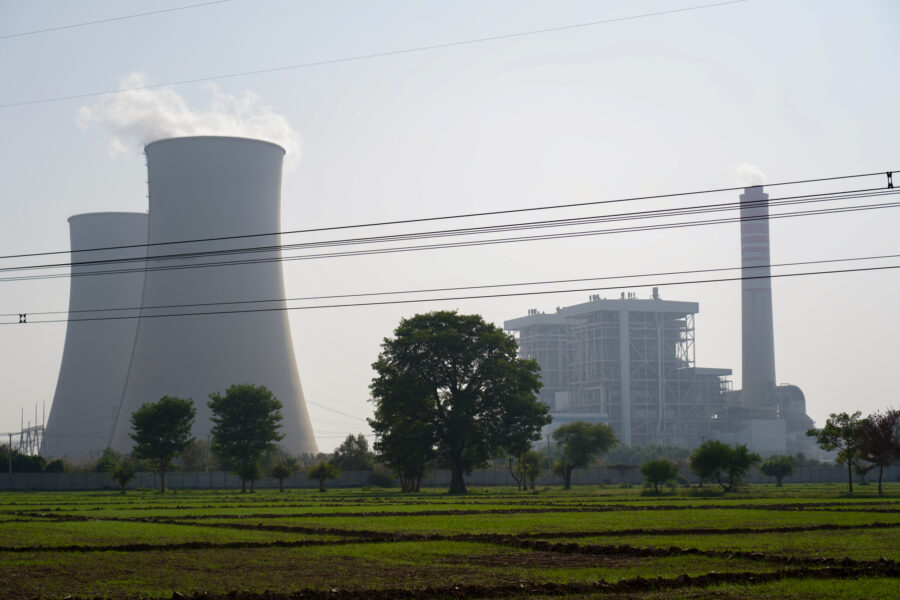The French oil and gas giant TotalEnergies was aware of the link between fossil fuels and rising global temperatures 50 years ago but worked with other oil majors to play down the risks for at least three decades, according to internal company documents and interviews with former executives.
The research, published on Wednesday by three historians in the peer-reviewed Global Environmental Change journal, outlines alleged efforts by the French energy group to cast doubt over emerging climate science in the 1970s, 1980s and 1990s, while pushing back against emissions reduction and climate-related taxes.
The study follows similar allegations made against other oil and gas majors in recent years, including ExxonMobil and Royal Dutch Shell, some of whose scientists have also been shown to have identified the climate risks associated with fossil fuels decades ago. The revelations come at an awkward time for Total and the wider oil industry as it seeks to regain public trust and build support for new strategies focused on cleaner fuels.
Total rebranded itself Total Energies this year as part of a pivot to tackle the climate crisis and achieve net zero emissions by 2050, but some climate activists have argued this is too little too late.
“These revelations provide proof that TotalEnergies and the other oil and gas majors have stolen the precious time of a generation to stem the climate crisis,” advocacy groups 350.org and Notre Affaire à Tous said in response to the report.
The research shows that Total personnel received the first warnings about the potential for “catastrophic global warming from its products” by at least 1971.
Total’s company magazine, Total Information, warned that year of a possible increase in average temperatures of 1 to 1.5 degrees Celsius, partial melting of the polar ice caps and a “significant” sea level rise “if the consumption of coal and oil keeps the same rhythm in the years to come”, the researchers found.
Despite the warning, Total said little on the issue for most of the next two decades, according to the research. The historians reviewed all editions of Total’s company magazine from 1965 to 2010 and after the 1971 article, did not find another reference to climate change until 1989.
In the interim, as public discussion of emissions and global warming gained prominence, Total began to work with other oil companies to cast doubt on the link between fossil fuels and climate change, the historians said.
At a 1988 meeting at Total’s headquarters in Paris, the global oil and gas industry association IPIECA formed a new “ad hoc” group, later renamed as the “working group on global climate change,” chaired by a scientist from Exxon, according to the research.
In a 1989 strategy paper, the Exxon executive recommended emphasising uncertainties in climate science in order to defeat public policies that might shift the energy mix away from fossil fuels.
A former executive at the oil company Elf, which Total acquired in 1999, told the historians that the French oil and gas industry had been happy to allow Exxon to take the lead, given its “weight in the scientific community”.
Through the IPIECA, Total, Exxon and other oil companies approved funding in the 1990s of scientific research that could “sharpen” the industry’s ability to highlight the limitations of current climate models and “potentially make global warming appear less alarming”, the research said.
This story is funded by readers like you.
Our nonprofit newsroom provides award-winning climate coverage free of charge and advertising. We rely on donations from readers like you to keep going. Please donate now to support our work.
Donate NowBy the time the UN framework convention on climate change was ratified in Kyoto in 1997, Total was no longer prepared to overtly attack the scientific consensus on climate change, the historians said. Instead, it shifted to emphasising “equivocal descriptions” of global warming and playing down the significance of the available evidence.
Total said it was “wrong to claim that the climate risk was concealed by Total or Elf in the 1970s or since,” adding that the company’s historic knowledge of climate risk was no different from that published in scientific journals at the time.
“TotalEnergies deplores the process of pointing the finger at a situation from 50 years ago, without highlighting the efforts, changes, progress and investments made since then,” it said.
Exxon said it had not seen the academic paper and could not immediately comment.
This story originally appeared in the Oct. 20, 2021 edition of The Financial Times
Copyright The Financial Times Limited 2021
Reprinted with permission.
About This Story
Perhaps you noticed: This story, like all the news we publish, is free to read. That’s because Inside Climate News is a 501c3 nonprofit organization. We do not charge a subscription fee, lock our news behind a paywall, or clutter our website with ads. We make our news on climate and the environment freely available to you and anyone who wants it.
That’s not all. We also share our news for free with scores of other media organizations around the country. Many of them can’t afford to do environmental journalism of their own. We’ve built bureaus from coast to coast to report local stories, collaborate with local newsrooms and co-publish articles so that this vital work is shared as widely as possible.
Two of us launched ICN in 2007. Six years later we earned a Pulitzer Prize for National Reporting, and now we run the oldest and largest dedicated climate newsroom in the nation. We tell the story in all its complexity. We hold polluters accountable. We expose environmental injustice. We debunk misinformation. We scrutinize solutions and inspire action.
Donations from readers like you fund every aspect of what we do. If you don’t already, will you support our ongoing work, our reporting on the biggest crisis facing our planet, and help us reach even more readers in more places?
Please take a moment to make a tax-deductible donation. Every one of them makes a difference.
Thank you,











